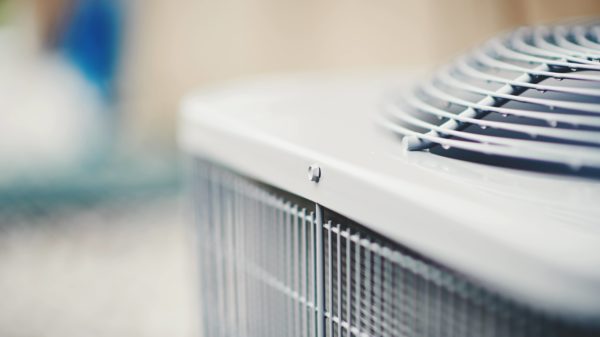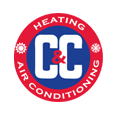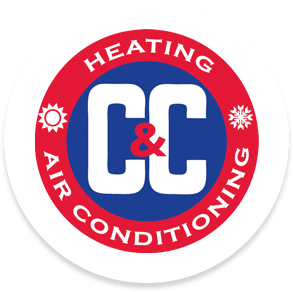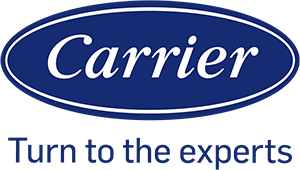10 Essential Furnace Safety Tips for Your Home

Most homeowners underestimate the importance of furnace safety, dismissing it as inconsequential until a problem arises. However, ensuring the safe operation of your furnace is vital. It not only prolongs the life of the unit but also guarantees your family’s safety. A well-maintained furnace reduces the risk of carbon monoxide leaks and fire incidents, enhancing the overall safety of your household. Hence, adhering to these 10 furnace safety tips is indispensable for a secure, warm, and comfortable home environment.
1. Change the Filter Regularly
Routine replacement of your furnace filters is critical to maintaining the units efficiency and safety. Filters trap dust, allergens, and other particles, preventing them from circulating in your home. Over time, these particles accumulate and clog filters. This reduces your furnace’s efficiency and forces it to work harder, leading to increased wear and tear.
Moreover, a clogged filter can cause the heat exchanger to overheat and shut off too quickly, disrupting the warming cycle and affecting your comfort. Hence, changing your filter every one to three months is recommended, depending on its type and your household conditions. Failure to adhere to this practice can lead to increased energy bills, reduced furnace lifespan, and compromised indoor air quality.
2. Schedule Regular Maintenance
Regular maintenance is vital for the longevity and efficient operation of your furnace. It includes inspecting and cleaning key components, such as the blower motor, burner, and heat exchanger, to ensure they operate optimally. Ignition systems and safety controls are checked for proper functioning, while belts and filters are replaced if necessary. Maintenance also involves assessing and cleaning vents and ductwork to improve airflow.
To ensure expert handling, consider hiring an HVAC technician from C & C Heating & Air Conditioning. They are qualified professionals who can perform these complex tasks efficiently, reducing the risk of problems and prolonging the unit’s lifespan.
3. Check for Carbon Monoxide Leaks
Carbon monoxide (CO) is a lethal byproduct produced when your furnace burns fuel inefficiently. It’s odorless and colorless, and it can lead to severe health issues, like nausea, headaches, or even death in high concentrations. CO leaks typically occur due to incomplete combustion, poor ventilation, or a faulty heat exchanger.
Ensure your technician installs detectors near your furnace and sleeping areas, testing them regularly to ensure functionality to detect and alert you to any CO leaks. In case of a CO leak, evacuate your house immediately and call a technician to repair the problem.
4. Keep the Area Around Your Furnace Clear
Always keep the area around your furnace clear by removing combustible materials, such as cardboard, paper products, and cleaning supplies. This practice ensures proper ventilation, mitigates the risk of accidental fires, and allows for easy access during maintenance or emergencies. Regularly sweep the area to remove dust and debris and maintain a clearance of at least three feet on all sides. Investing time in maintaining this safety zone can be a significant step toward a safer, more efficient heating system.
5. Install Smoke Detectors and Fire Extinguishers
Smoke detectors alert you of potential fires early, giving you time to extinguish the flames or evacuate. On the other hand, fire extinguishers offer a quick solution to small, manageable fires. Keep one near your furnace and in high-risk areas, like the kitchen. However, remember that a fire extinguisher is not a solution for large, uncontrollable fires in these cases, evacuate and call your local fire department immediately.
6. Ensure Proper Ventilation
Proper ventilation allows for the expulsion of harmful gases, like carbon monoxide, produced during combustion. Ensure your flue pipe is clear of obstructions and that your home’s vents are not covered or blocked. Hire our HVAC professionals to regularly clean and inspect ducts for leaks or damages. A well-ventilated furnace operates more efficiently, saving energy and costs. Moreover, it provides a healthier and safer living environment by improving indoor air quality and reducing risks associated with gas buildup.
Optimal ventilation is crucial for maintaining the efficiency of your furnace and ensuring the comfort of your home. Unrestricted airflows allow the furnace to draw in the necessary amount of air for combustion, support the distribution of heated air throughout your dwelling, and facilitate the expulsion of exhaust gases safely. The furnace can operate at peak efficiency when air pathways, such as ducts, vents, and filters, are clear.
7. Ensure Proper Lighting in the Furnace Room
Poor lighting can increase the risk of accidents, make maintenance tasks more challenging, and potentially obscure signs of furnace problems, such as leaks or rust. Therefore, maintaining good lighting is essential. Our technicians can check for well-placed, functioning light fixtures that provide adequate illumination for the entire furnace area. They should replace any burnt-out bulbs promptly and consider using long-life bulbs to reduce the frequency of replacements. A well-lit furnace room makes inspections and repairs safer, easier, and more effective.
8. Store Away Flammable Materials
Flammable materials, such as paints, varnishes, and gasoline, should be stored far away from the furnace. These substances have low ignition points, increasing the risk of accidental fires. Cleaning products, especially aerosols, are highly volatile and can easily combust when exposed to heat. Similarly, paper products, including boxes and bags, catch fire quickly and can spread flames rapidly. Even common fabrics can pose a fire risk when stored too close to the furnace. These materials, if ignited, can lead to severe property damage and pose a risk to occupants’ safety.
9. Avoid Using Unapproved Fuels
Using approved fuels for your furnace is crucial for its safe and efficient operation. Natural gas, propane, and heating oil are commonly approved fuels. They burn efficiently, providing optimal heat output and maintaining indoor air quality. Avoid using unapproved fuels, such as gasoline or biomass, as these can cause damage to the furnace, reduce efficiency and increase the risk of fires or harmful emissions. Refer to your furnace’s manual or consult our experts at C & C Heating & Air Conditioning to ensure you’re using the correct fuel.
10. Get Annual Furnace Tune-Ups
An annual furnace tune-up is an essential preventative measure, allowing professionals to inspect your system thoroughly, identify potential issues early and carry out necessary repairs or cleaning. This not only enhances safety and prolongs the life of your furnace but also improves its energy efficiency, leading to noticeable savings on your heating bills. Regular tune-ups ensure that the furnace operates at its highest capacity, maximizing comfort and reliability in your home.
Contact Furnace Service Experts
If you’re seeking proficient and reliable HVAC services, look no further. Our company, C & C Heating & Air Conditioning, in Macomb County, MI, boasts a Better Business Bureau A+ rating, high scores on Angie’s List, and employs EPA- and NATE-certified technicians, ensuring top-quality service every time. In addition to furnace services, we offer a wide spectrum of services, including AC services, ductless mini splits, water heaters, air filtration systems, and UV lights. Trust us now to optimize your home’s comfort and safety.
Call C & C Heating & Air Conditioning today to schedule an appointment and ensure your home is in the best hands.





